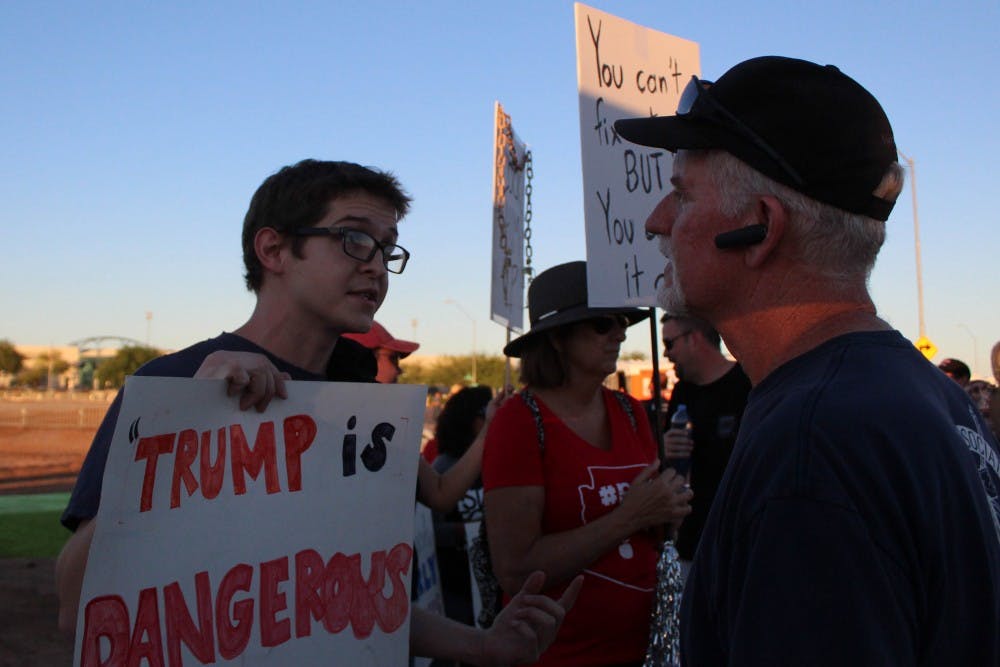Members of Congress are old, and for years, they've been getting older.
It's a trend that's been in the works for years — now, the average age of a United States senator is 62, while the average age of a U.S. representative is 58, according to the Congressional Research Committee.
This means the average member of Congress is at least 20 years older than the average U.S. citizen.
While this isn't inherently an issue, as problems such as health care coverage and student loan debt threaten young peoples' futures, it's become clear that now is the time for students and young people to get involved in the political process.
"I think if any young person wants to get involved, they should do it," said Jesse Avalos, the president of ASU Young Democrats.
Clearly, this is a message that resonates: The 2018 midterms saw the election of dozens of congresspeople who more accurately reflect the demographics of their constituents. By the time the freshmen are sworn in, the average age of members of the U.S. House of Representatives will drop by around a decade, according to NextGen America, a progressive nonprofit.
Over the years, Avalos has volunteered in the voting districts that border ASU's Tempe campus, and he is motivated by the change he’s already seen as the result of the work he’s done.
“I never thought that this type of stuff affected me until I started seeing people that I helped get elected make decisions that truly were able to improve my livelihood and the livelihoods of people in my community,” Avalos said. “I saw the effects of public service and what it can do for communities, and that’s why I keep on pursuing the work that I’m doing.”
Jimmy Arwood, an ASU graduate who studied public policy and currently works as a campaign manager for the Arizona Democratic Legislative Campaign Committee, became politically active his freshman year, following a $99 million budget cut to Arizona's universities that drastically affected the affordability of college.
"I saw a lot of my friends, who I lived with, drop out of college — that stayed with me and was the catalyst for me getting involved," Arwood said. "That’s when it really hit me that decisions made, especially locally, can have a pretty significant impact on my life."
Arwood's passion for education has remained a significant motivator for the work he does, and he encourages students and young people to work for the issues that matter to them.
"I would say, to a student, if they were wanting to get involved politically: find the issue you care about, find someone who’s representing you on that issue, work with them and see what you can accomplish," Arwood said.
For many young people, it’s easy to be discouraged by or indifferent to the political process, or to think of politics as an abstract game with few effects on how students live their daily lives.
But this is false. Who we elect and what they stand for directly shapes society and our role in it.
Voting is a powerful tool towards representation, but it's only half the battle.
Regardless of their political views, students should have a bigger voice in this country, and that means getting involved in politics — either by volunteering their time or running for office themselves.
At the end of the day, no one can understand or represent the interests of students better than themselves.
Editor's Note: Jimmy Arwood has previously written for the State Press on the Opinion desk.
Reach the columnist at cldoming@asu.edu and follow @chuck_dominguez on Twitter.
Editor’s note: The opinions presented in this column are the author’s and do not imply any endorsement from The State Press or its editors.
Want to join the conversation? Send an email to opiniondesk.statepress@gmail.com. Keep letters under 500 words and be sure to include your university affiliation. Anonymity will not be granted.
Like The State Press on Facebook and follow @statepress on Twitter.




